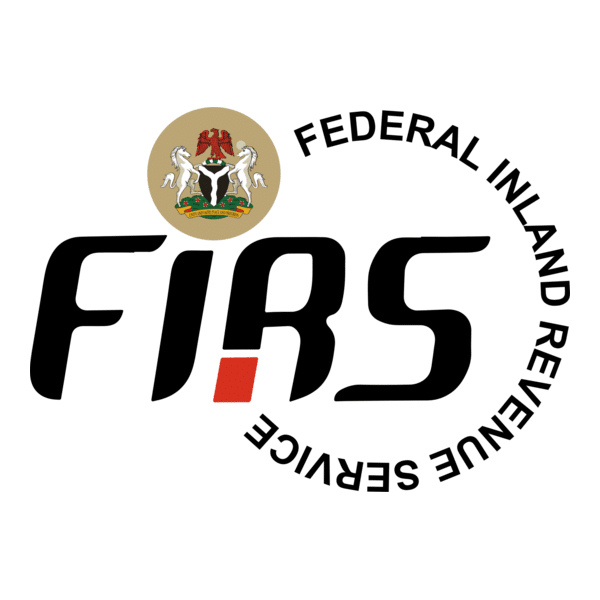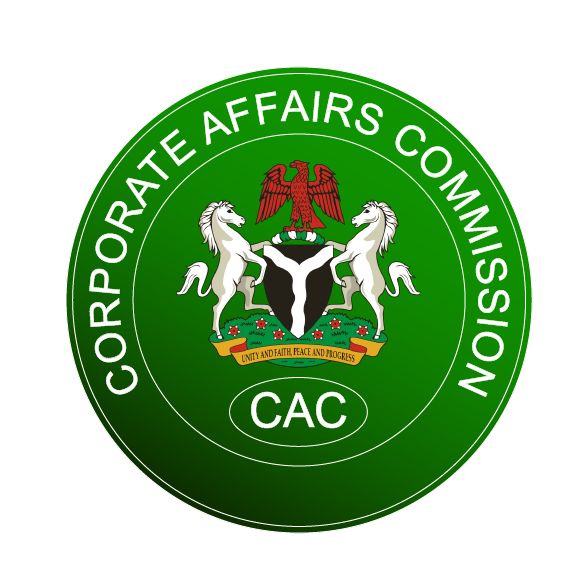Starting a business is an exciting journey, but have you ever wondered why some companies seem to grow faster than others? The secret often lies in one simple but crucial step: business registration.
In Nigeria, registering your business isn’t just a formality, it’s the foundation of building a strong, credible, and legally recognized business. Whether you’re planning to open a small local shop, an online store, or a larger company with big goals, business registration helps you access new opportunities, protection, and more customer trust.
In this guide, we’ll walk you through everything you need to know about registering your business and company in Nigeria. By the end of this article, you’ll have all the information you need to start the process and feel confident about your decision to take this important step!
You might be wondering how many business registrations we have in Nigeria. Not to worry, we will provide you with different registration types which you can choose from depending on the nature of your business.


Types of Business Registration in Nigeria
In Nigeria, there are two main types of business registration: Business Name Registration and Limited Liability Company (LLC) Registration. Understanding the difference between these will help you choose the best option for your business.
1. Business Name Registration
A Business Name is a simple and less formal way to start a business. This type of registration is perfect for small businesses or sole proprietorships, where you, the owner, are personally responsible for everything. It’s quick and relatively easy to set up.
Suitable for: Individuals or small businesses
Liability: You (the owner) are personally responsible for the business debts and issues.
What you need: A unique business name and proof of identity.
2. Limited Liability Company (LLC) Registration
A Limited Liability Company (LLC) is a more formal way of setting up your business. This type is suited for businesses that have multiple owners (shareholders) or want to protect the owners from personal liability in case of legal issues.
Suitable for: Businesses with multiple owners or bigger companies
Liability: Owners are protected from personal liability; only the business assets are at risk.
What you need: A company name, company directors, share capital, and legal documentation.
Related Posts:
- How to write a Simple Business Plan to Gain Funding Anywhere
- How to start a Business with no Idea in Nigeria
- Discover How to Open a New Business Location in Nigeria
- Trending Offline Business Ideas in Nigeria 2025
3. Other Business Types
There are also other business structures like Limited by Guarantee and Public Limited Company (PLC), but for most beginners, starting with a Business Name or LLC is the best option. And this leads us to the second question.

Why You Should Register Your Business in Nigeria
You might be wondering, “Why bother registering my business?” Here are some good reasons to leap:
Legal Identity: Registration gives your business a legal identity, making it easier to sign contracts and operate officially.
Access to Funding: Banks, investors, and even the government are more likely to trust and fund a registered business.
Customer Trust: When people see that your business is registered, they are more likely to trust your products or services.
Protection: Registering your business also protects you legally. If anything goes wrong, you’ll be shielded from personal liability (especially if you choose the LLC route).
How to Register a Business Name in Nigeria
If you decide that a Business Name is the right fit for your business, here’s how to register it step by step:
Step 1. Choose a Unique Business Name
The first step is choosing a name for your business. Make sure it reflects your business and is easy to remember. It should also be unique, so it doesn’t clash with existing businesses.
Step 2. Check Name Availability
Before you can use the name, you need to ensure no one else has registered it. You can do this through the Corporate Affairs Commission (CAC) website or at one of their offices. They’ll confirm if the name is available for use.

Step 3. Submit Your Registration Application
Once your name is confirmed, you’ll need to submit a form with basic information about your business (like your address and business type) and the business owner’s ID.
Step 4. Pay the Registration Fee
There’s a small fee for business registration, which you can pay online via the CAC website. Once paid, you can submit all your forms.
Step 5. Receive Your Business Certificate
After reviewing your application, the CAC will issue a Business Certificate. Congratulations, your business is now officially registered!
How to Register a Limited Liability Company (LLC) in Nigeria
If you want more protection or have partners in your business, an LLC might be the best choice. Here’s how to go about registering a company:
Step 1. Choose Your Company Name
Just like with a Business Name, you’ll need to choose a name for your company. Make sure it’s unique and reflects your business mission.
Step 2. Prepare the Required Documents
For LLC registration, you’ll need more detailed documents, including:
- Identification of the company directors
- Company address
- Shareholder details (how much each person will invest)
- A statement of your business objectives
- Secretary and resolution details
Step 3. Submit Your Registration Forms
You can submit your forms online via the CAC portal. Make sure all the documents are correct and up to date.
Step 4. Pay Fees
There are registration fees, as well as other costs like stamp duty, that must be paid at this stage.
Step 5. Wait for Approval
Once the CAC processes your documents and fees, they will approve your application. You will then receive your Certificate of Incorporation, officially making your LLC a legal entity.
Key Differences Between Business Name and LLC Registration
Here’s a quick comparison of the two options:
| Feature | Business Name | Limited Liability Company (LLC) |
| Suitable For | Small businesses and sole proprietors | Larger businesses, partnerships, and LLCs |
| Liability | Owner personally responsible for business debts | Owners are protected from personal liability |
| Ease of Setup | Faster and easier | More formal requires detailed documents |
| Minimum Capital | No minimum requirement | Minimum share capital required |
| Ownership | One owner (or a few partners) | Multiple shareholders or partners |

Common Challenges in Business Registration and How to Overcome Them
Starting the registration process might seem daunting, but don’t worry! Some common challenges people face include:
1. Name Availability: Sometimes the name you want is already taken. Keep a few alternatives in mind before you begin.
2. Document Preparation: Ensure that all your documents are complete and correct. If in doubt, ask for professional advice.
3. Delays in Processing: It’s not uncommon for things to take a little longer than expected. Be patient and track your application online.
Post-Registration Steps for Your Business
After registering your business, there are a few more steps to fully set up your operations:
1. Register with Tax Authorities: You’ll need to get a Tax Identification Number (TIN) from the Federal Inland Revenue Service (FIRS).
2. Open a Business Bank Account: Having a dedicated bank account for your business makes it easier to manage finances and build trust with customers.
3. Obtain Licenses and Permits: Depending on your business type, you may need to apply for specific permits or licenses.
4. Register for VAT: If your business is selling goods or services, you may need to register for VAT.

Frequently Asked Questions (FAQs) About How to Register Your Business
1. How long does it take to register a business in Nigeria?
The time it takes to register a business can vary depending on the type of business and the accuracy of your documentation. On average, it takes between 1 to 3 weeks for a Business Name registration, and up to 3 to 4 weeks for a Limited Liability Company (LLC) registration. Delays may occur if there are errors in your submission or name reservation process, so make sure all documents are complete.
2. Can foreigners register a business in Nigeria?
Yes, foreigners can register businesses in Nigeria. However, they are limited to registering Limited Liability Companies (LLCs). A foreigner cannot register a Business Name on their own, but they can set up a business with a Nigerian partner. For an LLC, they must provide the necessary documentation, including proof of identity and business objectives.
3. What is the minimum share capital required for a Limited Liability Company (LLC)?
The minimum share capital required for registering a Limited Liability Company (LLC) in Nigeria depends on the nature of the business. For many types of businesses, the minimum share capital is NGN 100,000. However, certain sectors like shipping or manufacturing may require higher amounts, such as NGN 25 million for shipping businesses.
4. Can I register my business online?
Yes, like in the comprehensive video above, the Corporate Affairs Commission (CAC) allows you to register your business online through their official portal. This includes submitting your name reservation, and business forms, and making payments for the registration. The online process makes it convenient and faster than visiting the CAC office in person.
5. Do I need a lawyer or accountant to register my business?
While it’s not mandatory to hire a lawyer or accountant for business registration, it’s recommended if you’re unfamiliar with the process or are registering a Limited Liability Company (LLC). Professionals can help you ensure all your documents are in order and avoid delays or mistakes during the registration. For simpler Business Name registrations, you can manage the process on your own using the CAC portal.
Conclusion
Now that you understand the steps involved in registering your business or company in Nigeria, you’re in a great position to get started. It might feel overwhelming at first, but with the right steps and information, you’ll be able to navigate the process with ease.
Remember, registration is just the beginning of your journey, your hard work, passion, and dedication will drive your success. So, go ahead and take that first step today, and soon you’ll be well on your way to running your own official business in Nigeria!
If you find the guide helpful, Please Subscribe to our newsletters, like, and Shear. Happy business journey!


